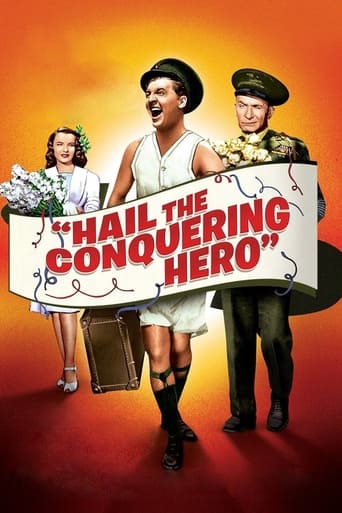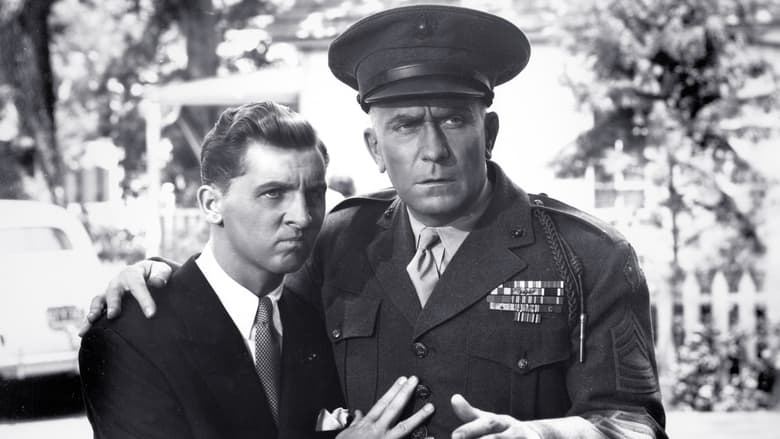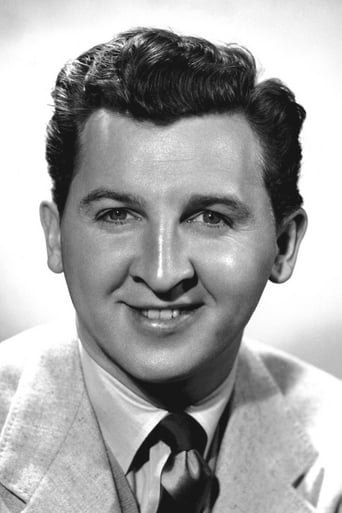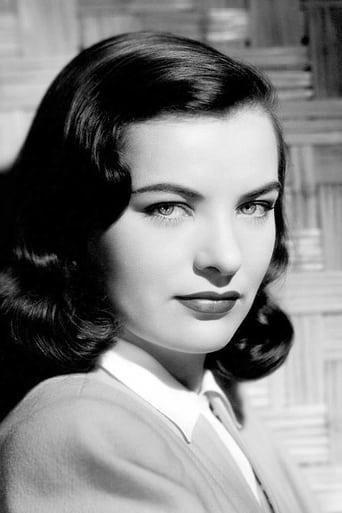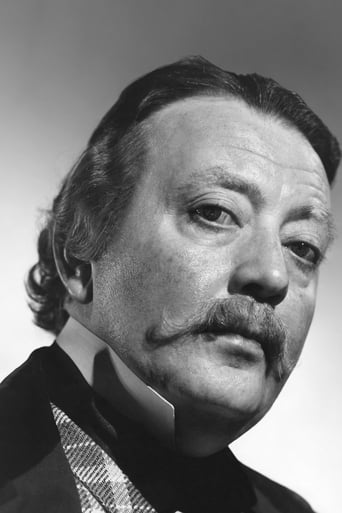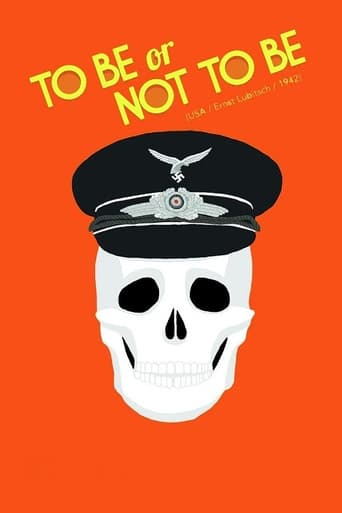Hail the Conquering Hero (1944)
Having been discharged from the Marines for a hayfever condition before ever seeing action, Woodrow Lafayette Pershing Truesmith delays the return to his hometown, feeling that he is a failure. While in a moment of melancholy, he meets up with a group of Marines who befriend him and encourage him to return home to his mother by fabricating a story that he was wounded in battle with honorable discharge.
Watch Trailer
Free Trial Channels
Cast


Similar titles
Reviews
Don't Believe the Hype
Best movie ever!
After playing with our expectations, this turns out to be a very different sort of film.
This is a small, humorous movie in some ways, but it has a huge heart. What a nice experience.
"Hail the Conquering Hero" as directed by Preston Sturges is a film about deception and its reception by the public, and in this case the American public. This film is also a biting satire delineating ideals about patriotism, hero worship of the military, politicians, the gullibility of the public and even mother love. Starring many of the Sturges travelling road company like Eddie Bracken, Raymond Walburn, and William Demarest among others, the story of Woodrow Lafayette Pershing Truesmith details why a man who is rejected by the Marines for chronic hay fever comes to be a hero in spite of these limitations.When Woodrow meets up with his father's former military buddy, as played by Demarest a deception and fraud follows that begins a chain of events that include the house mortgage to be handled, a statue of Woody and paterfamilias to be erected and Woodrow to be nominated for mayor of the town. The fact that the sharp and biting wit of Preston Sturges was willing to take on such giants of sentiment and satirize them, especially during wartime, shows what a relentless observer of mankind he was. Being that he had changed his own real name from Edmond Biden, perhaps the idea of changing identities was appealing to him also.The fact that the societal norms purveyed here have not changed much in the years since it was produced in 1944 tell a lot about the American public's ability to forgive any story or fraud or crime, if the story and tale behind it are exciting or interesting enough. That ostensibly is the real story here in all its raw truth. The public's need to see the good in a crook, the honor in a liar and brains in a fool, are still extant in our current society.Deception in movies or in real life is often applauded and is a thematic constant in both. Highly recommended.
This widely hailed classic, generally regarded as Preston Sturges' best (and thought to have lost the 1944 Oscar for best Screenplay mainly because writer/director Sturges had to compete against himself and his own Miracle At Morgan's Creek), is one of those rare films that actually get better with repeat viewings.We first meet Woodrow Lafayette Pershing Truesmith (Eddie Bracken) sitting alone and depressed at the end of a nightclub bar near the defense plant where he has been patriotically working since being discharged from the Marines for "chronic hay fever" shortly after enlisting to be like his Marine father (who won a Congressional Medal of Honor, falling at WWI's battle of Bella Wood on the day Woody was born). We see him, in what appears to be a regular practice, buying drinks and food for a group of six Marines, led by William Demarest in the role of his long life.The grateful Marines get Woody's story out of him - that he could not face going home following what he viewed as his "disgrace," and wrote his mother (letters mailed by soldiers shipped abroad) that he WAS serving over seas, and released his girlfriend who he was sure wouldn't want someone who couldn't serve. Freddy Steele's "Bugsy," raised in an orphanage, is so outraged that Woody would cut himself off from the Mother he didn't have, that he calls Woody's Mother, telling her that her son's been discharged following recovery from wounds and is coming home - starting the "little lie" that rapidly snowballs in comic complications.All six Marines (after first setting up the core situation by forcing their own uniforms and medals on Woody on the train home to pull off the charade for his mother) are such solid, grounding presences throughout the film packed with Sturges' regular team of character players from Ray Walburn as the opportunistic more than corrupt small town mayor to Franklyn Pangborn as the general factotum, that it is almost criminal that only a couple of them are credited by name. The film's chief leap of faith is that any Marine would violate regulations as to the wearing of uniforms and medals not earned - but Sturges the screenwriter bridges this gap neatly between Woody passionately struggling NOT to be caught up in the charade and the soldiers themselves becoming trapped in it.In the end, in a film not remembered for its subtlety, Sturges' actual subtlety nearly works against him by neither making his justifications as up front and memorable nor his "bad guys" as deeply villainous as, say, a Frank Capra might have, but the warmth and essential nobility of the true "hero" shine through and make this something of value far beyond the time it was made for.In 1961, the tale came a-cropper in a noble attempt to turn it into a Broadway musical with a book by Larry Gelbart (M*A*S*H), a score by Moose (Peter Pan) Charlap & Norman Gimbel and direction and choreography by the great Bob Fosse (who was fired on the road in a dispute over his choreography!). The timing was off more than the content - half a decade later, once the Vietnam conflict had heated up and was still perceived as a noble effort (we were never told at the time that the war was to prop up a government which refused to participate in UN supervised popular elections when the French withdrew from their former colony because the nationalist general who led the drive for freedom - their George Washington - was sure to win), things might have been different. The demo recordings which survive are nice enough - but thanks to TCM and home video, the real deal is available and one of the best.This is not a pro or anti-war film, it is simply a film set in wartime (and excellently capturing the home front of that time) which quite beautifully looks at the nature of quiet heroism. If you've never seen it, you should - if you have, it's worth another look. It's probably even better than you remember.
One of the things I liked about Hail The Conquering Hero is the fact it got made at all during World War II America. The idea of a man medically discharged from the Marines passing himself off as the great hero from Guadalcanal, even at the behest of some Marines he meets in a bar is ludicrous on its face. But by golly Preston Sturges pulled it off.Think about it, within a year of the end of World War II a genuine 4F with no pretense about it would be a great American hero in Frank Capra's It's A Wonderful Life. In the end both George Bailey and Woodrow Pershing Lafayette Truesmith would be the saviors of their respective small towns.Generally however a military record of some kind was going to be a necessity in politics after World War II. Hubert H. Humphrey had a legitimate draft deferment and was Mayor of Minneapolis during the latter part of World War II. But his lack of war record contrasted badly in running for president against John F. Kennedy in 1960.Sturges realized that it's the integral part of his satire of small town life and politics. Certain forces within Eddie Bracken's town would like to use his new found celebrity status to make him mayor to unseat bloviating Raymond Walburn at his bloviating best on screen. Ideas about how to govern get real lost in the political process, the same way they do in Sturges's first real success, The Great McGinty.Bracken who after Sturges left Paramount gradually slipped back in the ranks of supporting players is in the hands of the director who knew how to utilize his schnook persona the best. Poor Bracken is the posthumous son of a World War I Marine hero who died at Belleau Wood and those were the first Americans in combat in that war. When the second World War comes, he enlists hoping to emulate his late father whose unseen presence was felt growing up.But he's washed out due to hay fever and can't face coming home and disappoint sweetheart Ella Raines, mother Georgia Caine, and aunt Elizabeth Patterson. He buys a round at a bar for some returning Marines from the Pacific led by William Demarest who knew his father back in the day. The Marines cheer him up and Demarest gets the bright idea of passing him off as a great war hero, discharged due to battle wounds. They accompany Bracken back to his home and his political 'career' mushrooms from there.Hail The Conquering Hero earned Preston Sturges a nomination for Best Original Screenplay and he was up against himself in that category for Miracle At Morgan's Creek. His films canceled each other out and Wilson won the Oscar in 1944 in that category.You know if they had succeeded in pulling this off, I do wonder how Bracken might have done trying to get Veteran's benefits later on.But Hail The Conquering Hero is Preston Sturges at his best.
In a wonderful series of films between 1940 and 1948 Preston Sturgis rewrote the idea of film satire in Hollywood, taking apart political and business sacred cows, and showing a remarkably realistic view of sex in America despite the continued use of the so-called Hays Office and the moral code.HAIL THE CONQUERING HERO is one of the best of these films. It deals with the issue of heroism and it's political value in wartime. Woodrow Truesmith (Eddie Bracken) is a 4-F who has been working in California in a plant because he could not get drafted. But his family and neighbors expect him to be in the army. His father was a war hero in World War I (he was named Woodrow Lafayette Pershing Truesmith after President Woodrow Wilson, General John Pershing, and the Marquis of Lafayette - supposedly Pershing's staff Major, Charles Stanton, made the statement "Lafayette we are here" when our troops arrived to help the French in 1918 - so that Woodrow was born about 1918). Bracken has lied in letters to his mother that he is a marine and a hero. He tells this to a small group of Marines, led by William Demerest (and including one named Bugsie, played by former boxer Freddie Steele) who decide to accompany him back to his home on their furlough. They go with him, and back up his lies, so that Bracken finds himself the town's leading hero - and a potential piece of political timber.The town is run by two men, Al Briggs (the quiet but intelligent town boss) and Raymond Walburn, the richest man in town who is the mayor as well: Everett Noble. Walburn is always blustering, but he basically knows what's what. However it is Briggs who asks the right questions. When the reform party nominates Woodrow for Mayor, Briggs asks, "I wonder if he really is a hero?" And he starts making inquiries.They have an unwitting ally: Woodrow himself. He finds the expansion of his lies too much pressure on him, and he questions it's value. But he can't buck his mother, his girlfriend (Ella Raines), nor Demerest, Steele, and the other Marines. They've learned that Woodrow is the only hope for the town's future because it's currently somewhat shoddy and corrupt in it's goals and actions. They can't let Woodrow confess.What makes a hero? In HAIL THE CONQUERING HERO, set in the middle of WORLD WAR II, it turns out that heroism is not only found on a military front or battlefield, but can be found on the home front as well. It can take many forms, and sometimes it is at great personal humiliation and hurt. Bracken never had a better role (except for his other starring role for Sturgis in THE MIRACLE OF MORGAN'S CREEK), and demonstrate the growth of his moral stature quite well. Demerest, Walburn, Raines, Briggs all do well (Demerest in an oddly different role - he's a soldier, not a wise guy), and Freddy Steele's "Bugsie" is a wonderful portrait of a slightly mentally ill soldier with a mother fixation. Steele had a a career in movies in the 1940s, mostly in bit roles. This was his best performance.

